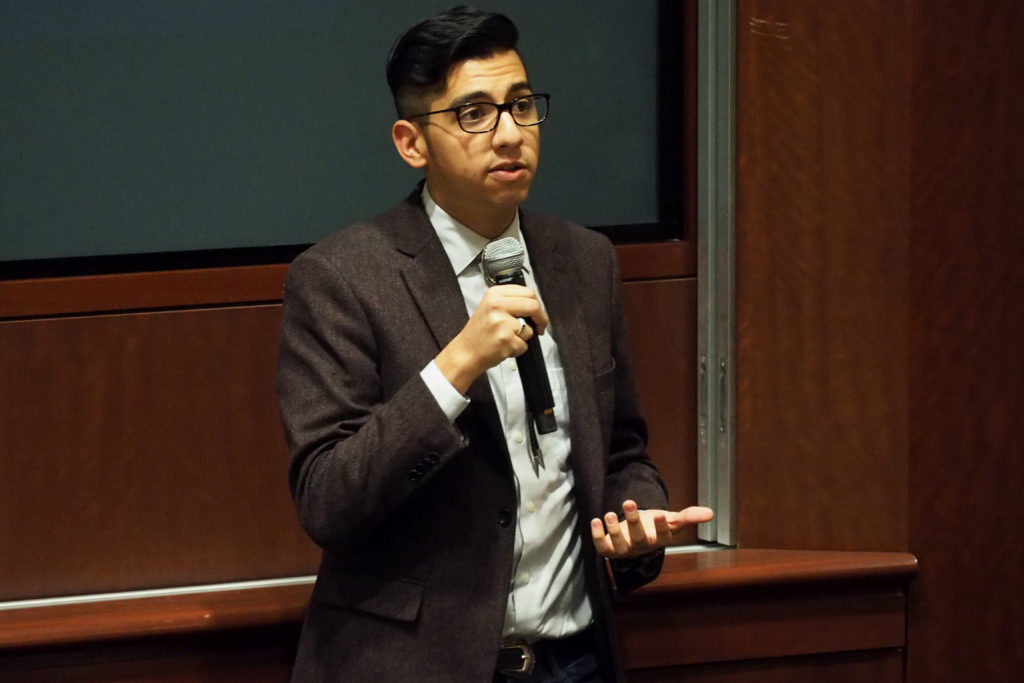Updated: Nov. 11, 2019 at 2:02 p.m.
The Anything But Colonial Coalition presented to about 35 students and alumni at the Office for Diversity, Equity and Community Engagement’s fifth Diversity Summit Friday about why the group wants to strike GW’s Colonials nickname.
Coalition leaders said the University should change the moniker because Colonials were “complicit” in violence and oppression, school spirit should unite communities instead of reinforcing the “divisive hierarchy” Colonials supported and that George Washington himself was not a colonial. Discussions about swapping out the nickname should involve students, faculty, officials and alumni, because the change would affect all University stakeholders, leaders said.
Co-leader Hayley Margolis said the group is advocating for the University to remove the word “colonial” from any GW-affiliated language, like team names or events titled “Colonial Invasion.”
“’The Colonial’ has been how we’ve identified as a campus for almost a century now,” she said. “We’ve learned to celebrate it, we’ve learned to embrace it, so part of this conversation is going to be unlearning that.”
Margolis, a former Student Association senator, reignited the push to change the moniker last year after prior student efforts dissipated. The coalition will spend the year growing student support for the name change.
Margolis said leaders hope to align their efforts to change the moniker leading up to the University’s bicentennial, during which community members will be reflecting on GW’s past and future as a school.
“There is no better time to think critically and reflect on our past as a University, as well as revel and celebrate in what we’re doing right now as a University and envision our future,” she said.
About 54 percent of students approved a referendum last spring urging the University to swap the Colonials moniker for a “less offensive name.”
Presentation attendees asked coalition leaders how the group will include older alumni in conversations about the name swap. André Gonzales, the SA’s director of legacy review and a coalition leader, said students should share information about recent advocacy efforts to keep alumni updated.
“We have a rich history and a lot of alumni that we need to engage, and we need to make ensure that this is a community decision,” he said.
SA President SJ Matthews filed an executive order in September calling for the creation of the “Colonial Moniker Task Force,” a five-student committee that will research monikers to replace the Colonial. Gonzales stepped down from his position as the SA Senate’s pro tempore to serve in the director position and chair the task force.
Gonzales said the task force is currently conducting a financial study to research the cost of swapping the moniker and rebranding University materials or groups that use the Colonials nickname.
“I’m really excited that we’re going to actually be able to have a price tag to this pretty soon so that we can be talking with actual figures,” he said.
Georgie Britcher, the Students for Indigenous and Native American Rights president and former SA president for diversity and inclusion, said she hopes removing the “Colonials” moniker will create a more inclusive community for native students and students of color.
She said some native students have left GW because they do not feel welcome on campus. Forty-nine “American Indian” students – about 0.18 percent of the student population, the lowest in the past 10 years – enrolled at GW in 2019, according to institutional data.
“We’re not okay with that, and that makes us feel uncomfortable and they know students that have transferred because of that,” she said.
This post has been updated to reflect the following correction:
The Hatchet incorrectly reported that the Multicultural Student Services Center hosted the Diversity Summit. The Office for Diversity, Equity and Community Engagement hosted the summit. We regret this error.








